This post may contain affiliate links. As an Amazon Associate I earn from qualifying purchases.
* * *
Note: This post is not intended for members of PETA, reptile lovers, vegetarians, or the easily offended. Please read with an open mind.
* * *
Food is a major part of traveling for me. I enjoy seeking out the best restaurants, sampling street foods, and taking food tours, so it should come as no surprise that taking a cooking class appealed to me when I was in León. Several agencies will organize a cooking tour for you, but I wasn’t interested in cooking rice or sampling chocolate drinks, two things I can do on my own. I signed up for the full whammy: cooking Sopa de Garrobo and Indio Viejo with NicAsí tours.
My tour was described as “a mixture of culture, history and local food” and started with a tour through León’s central market. Not only would we sample some goodies, but we’d also be picking up all the ingredients we’d need for our cooking class. On the menu was a pico de gallo starter, indio viejo (a beef and cornmeal porridge, for lack of a better description), and sopa de garrobo (iguana soup).
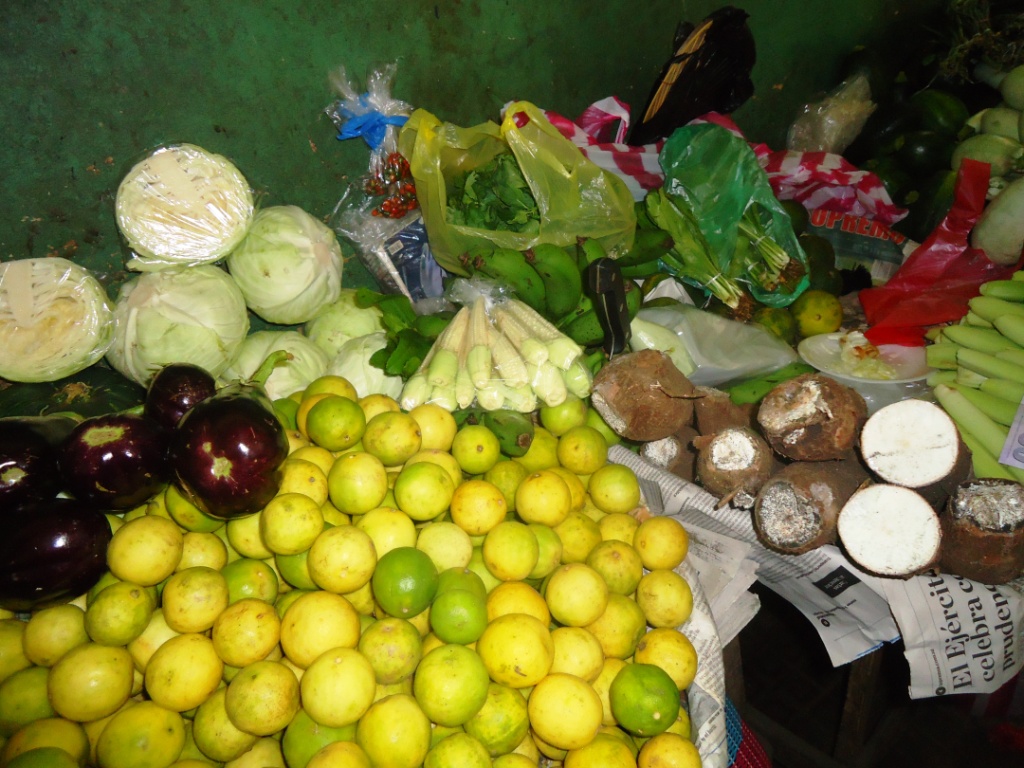
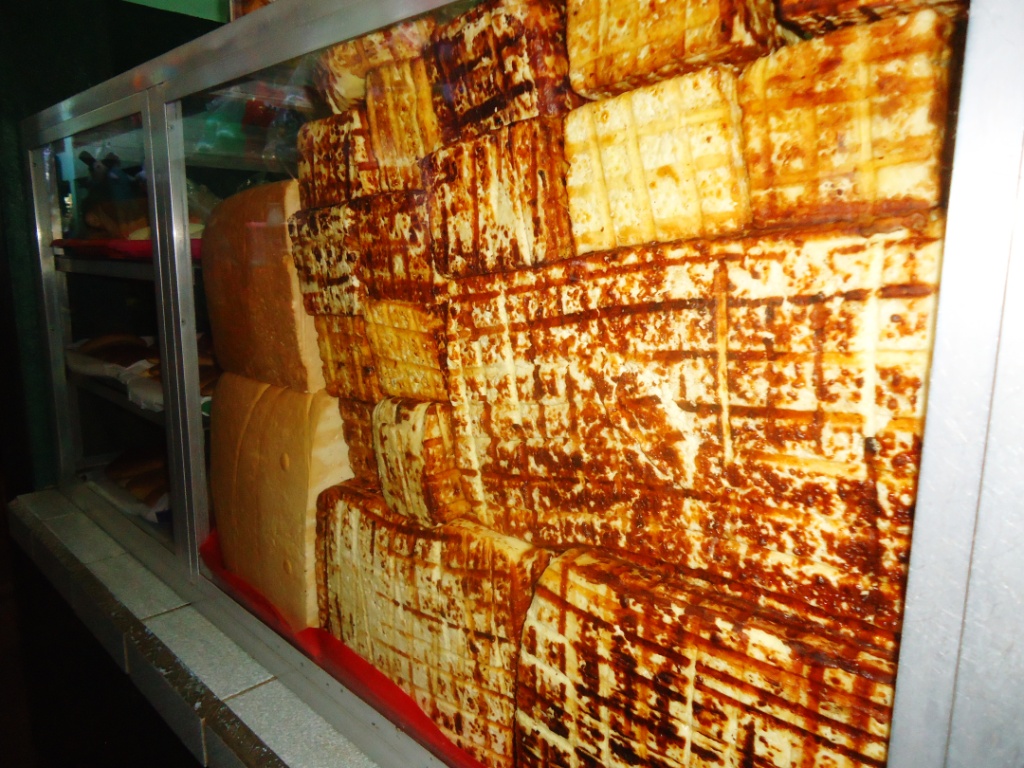
Shopping at the market is obviously a bit different from going to your local Wegmans, but for the most part, León’s is pretty tame compared to some of the markets I’ve visited in other parts of the world. We were almost done shopping when it was time to buy the meat for our entrees. There was no issue picking up some beef, freshly cut into a nice piece for us, but as for the iguana…it was sold whole.
And alive.
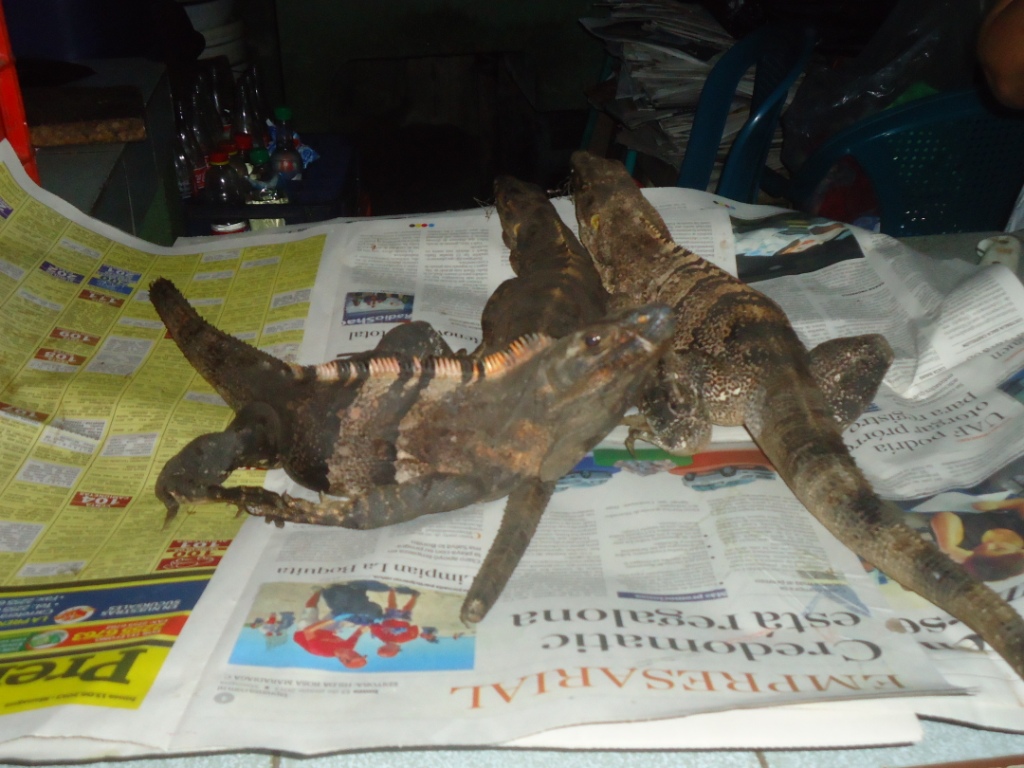
Let me set the record straight: I am a proud carnivore. I love eating meat and I love trying new foods (meat or otherwise). I’m also married to a hunter and I’ve happily prepared his venison, caribou, and wild hog for dinner. However, I have a warm heart toward animals and these iguanas at the market didn’t look to be in very humane conditions nor was I particularly excited about watching the iguana be butchered in front of me. Heck, I’m the girl who cried when I accidentally ran over a squirrel with my car. I wanted to eat the iguana, but I wanted it to live a happy life until the very end.
Regardless, I handed over 100 cords — about $4 — to the merchant and she wrapped up an iguana for me in a plastic bag. Alive.
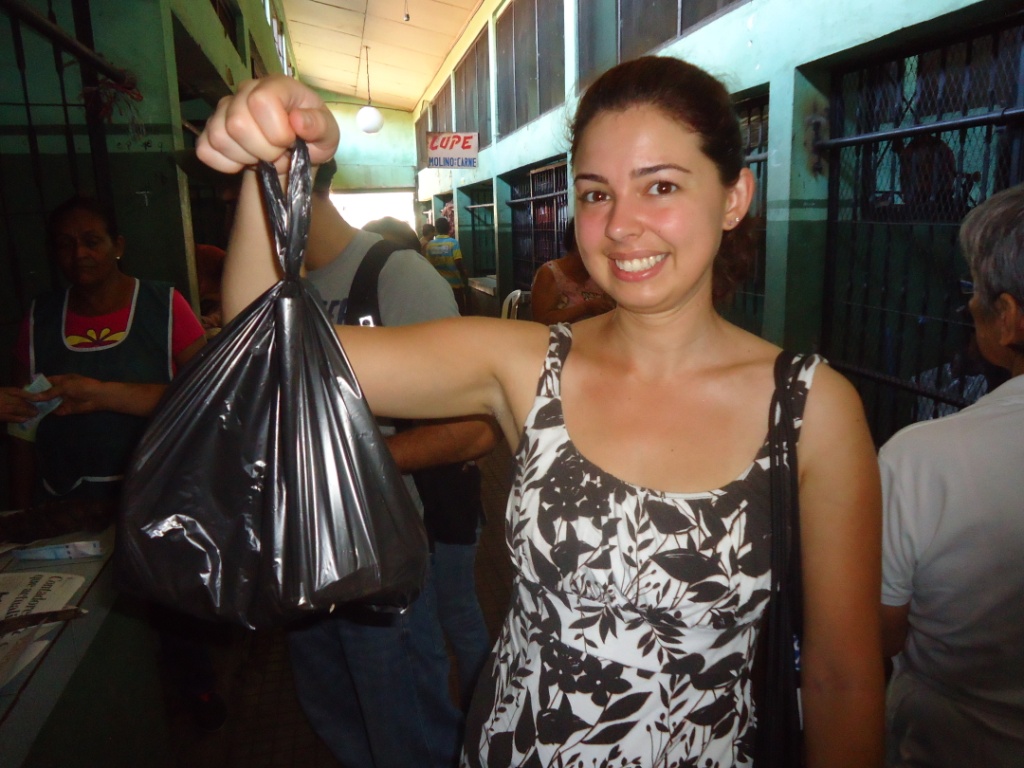
By this point, we had gathered all our ingredients and it was time to head to the Sutiava neighborhood of León, a bus ride away. True to form, it wouldn’t be a riding a chicken bus unless there was a live animal onboard. I just never assumed I would be the one carrying that live animal. Let me tell you, standing on a crowded chicken bus while carrying an iguana — who at this point has poked a foot out — is a bit of a balancing act.
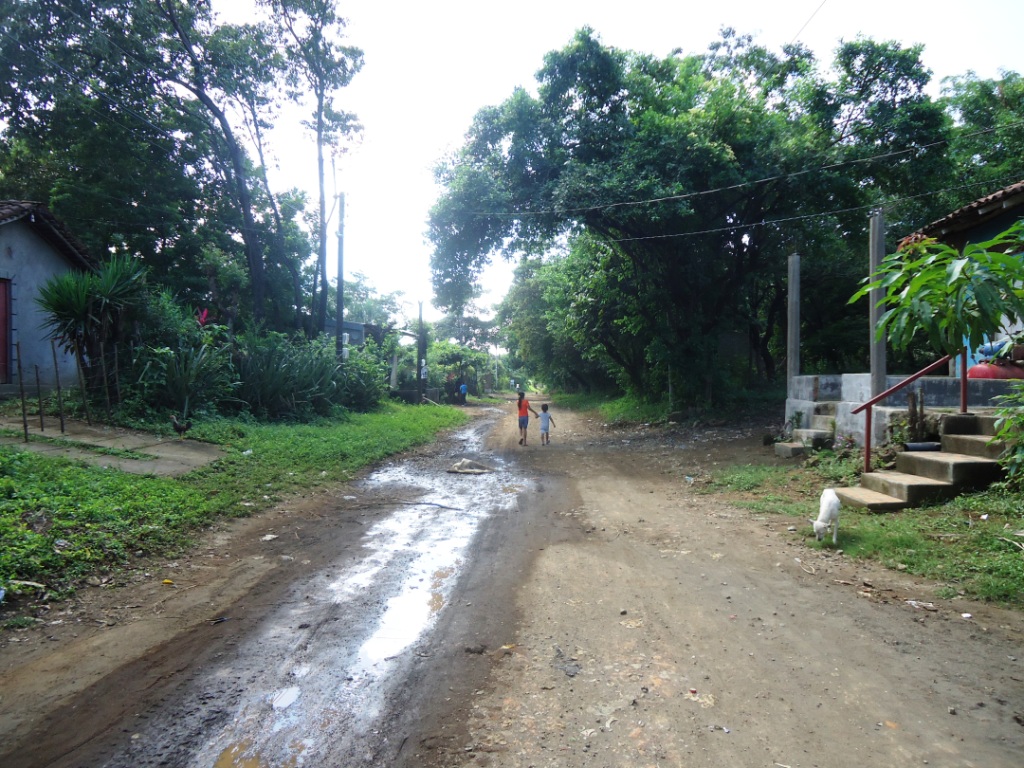
Our first stop was to drop off our ingredients at a local home, where someone would begin boiling our beef while we made a side trip. We were off to the tortilleria, where just a few women are responsible for making hundreds of tortillas every day. They start work around 3am in order to have all their deliveries made in time for lunch. By the time we arrived, mounds of dough had already been prepared and it was time to shape and cook the tortillas.
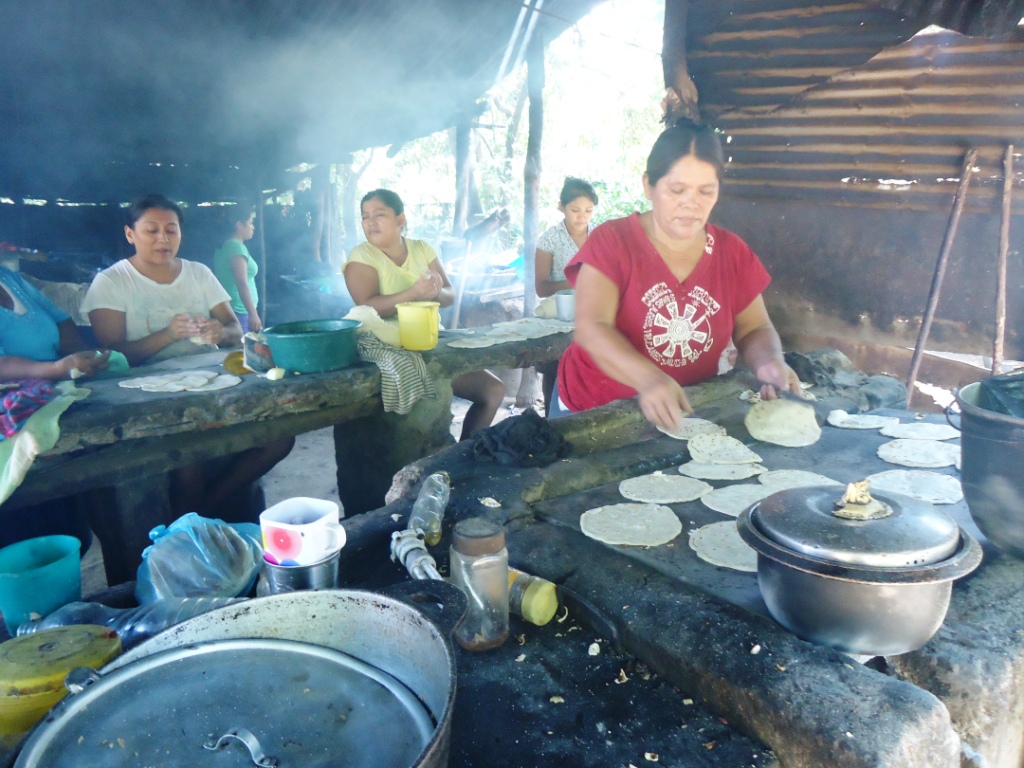
Sidestepping the smoke, I had the chance to make my own tortilla as well. Leonese tortillas are made from corn, not flour, and are on the sweet side due to the type of corn they start with. They’re also thicker than tortillas from other areas, which makes them great for scooping up the food on your plate.
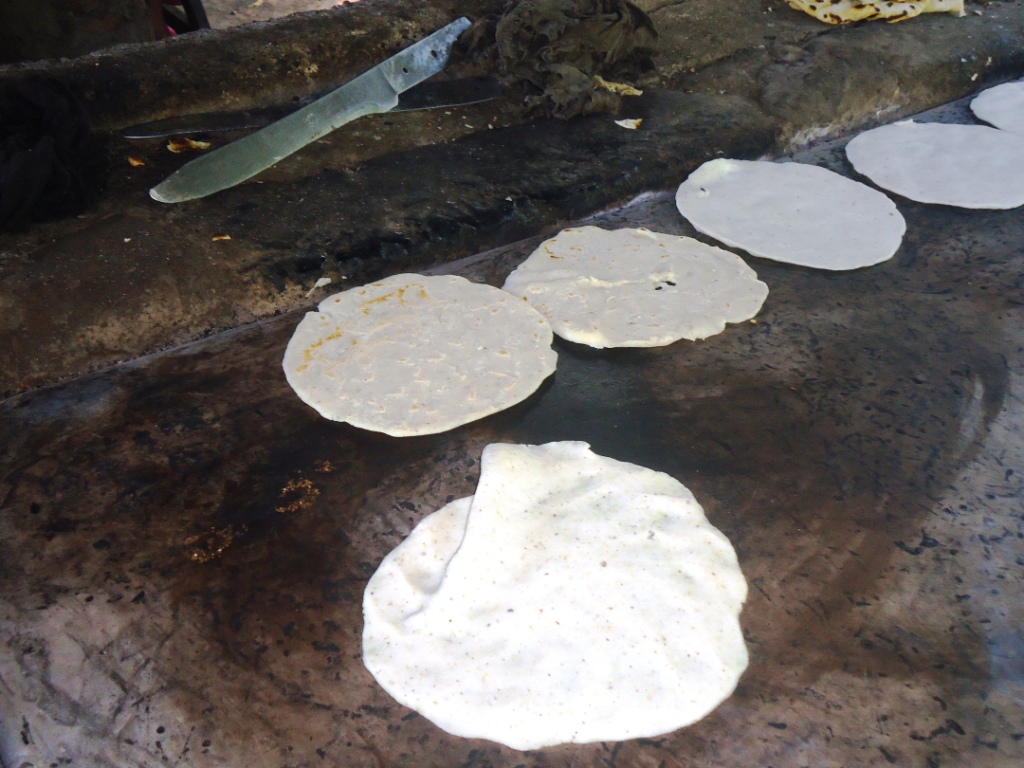
We returned to our kitchen for the day to finish preparing our lunch. Sure enough, my iguana was still waiting for me. I had secretly been hoping he’d be nicely butchered already, but no such luck.
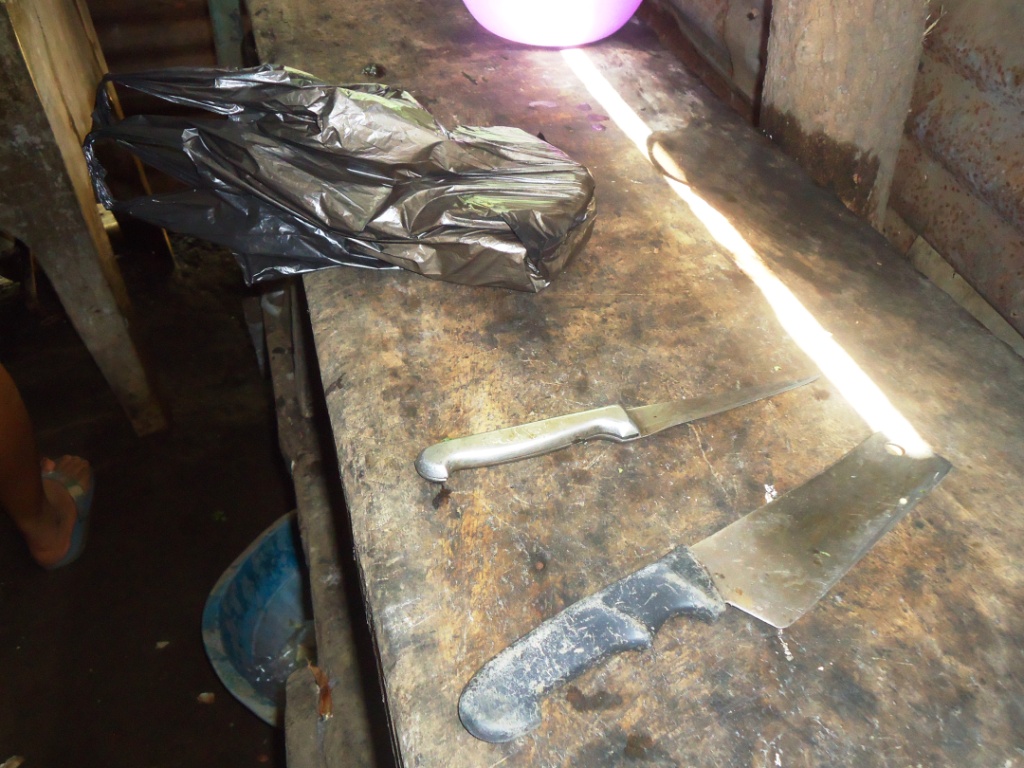
Much to my chagrin, it was time to prep the iguana by rinsing him off and then…well, finishing the prep job.
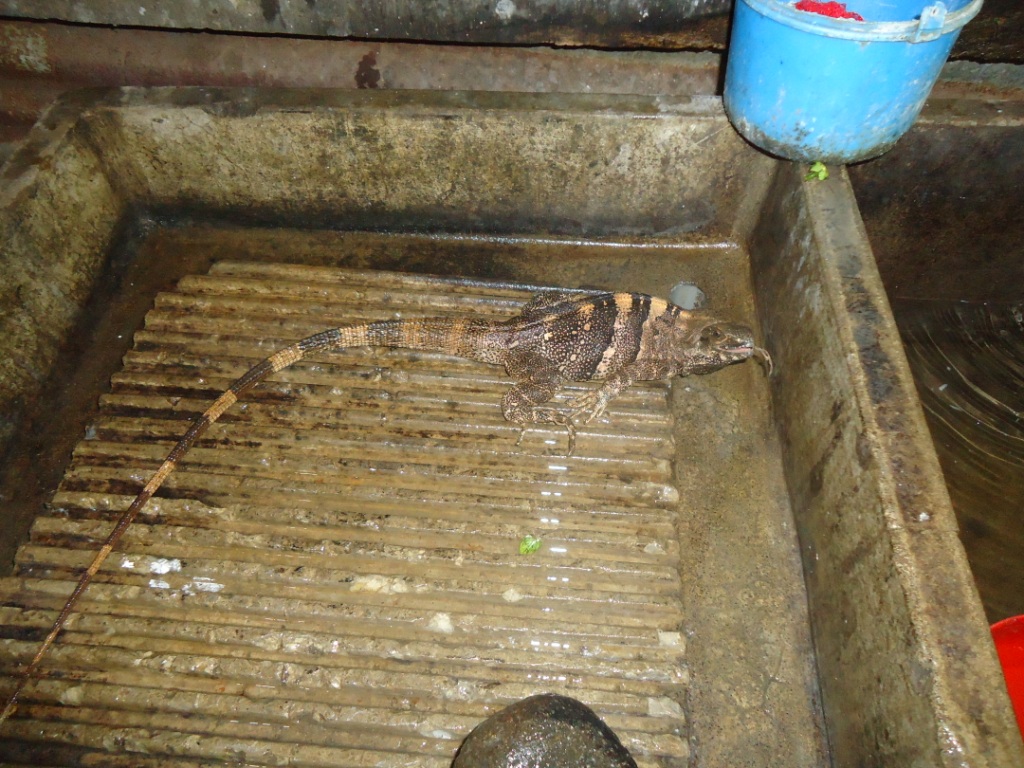
It quickly became apparent that it would be my task to kill the iguana. If you want to learn to cook in Nicaragua, you’ll learn everything from start to finish. I wish I could say that I had a super-sharp cleaver to do the dirty work, guillotine style, but I had only a dull chef’s knife to work with.
Our host proceeded to help with the removal of the tail (they don’t eat that part), which freaked me out. He also skinned the animal, using his expertise to not waste any meat in the process.
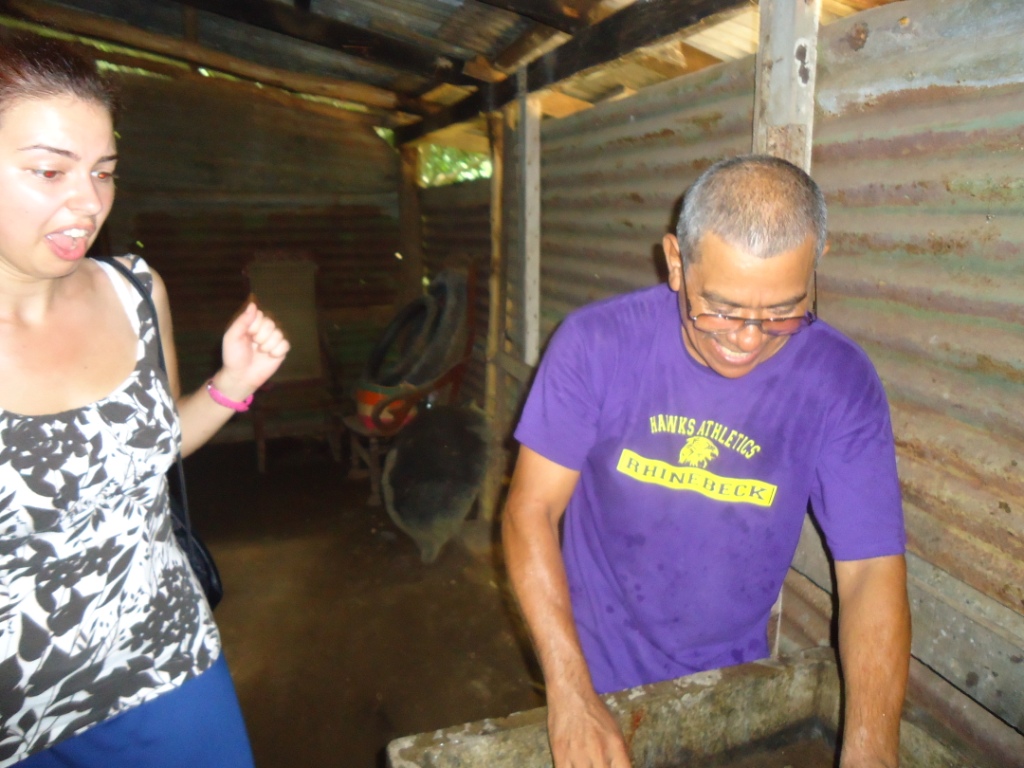
From that point forward, cooking was more “normal”. We had beef to shred, vegetables to chop, and plenty to mix.
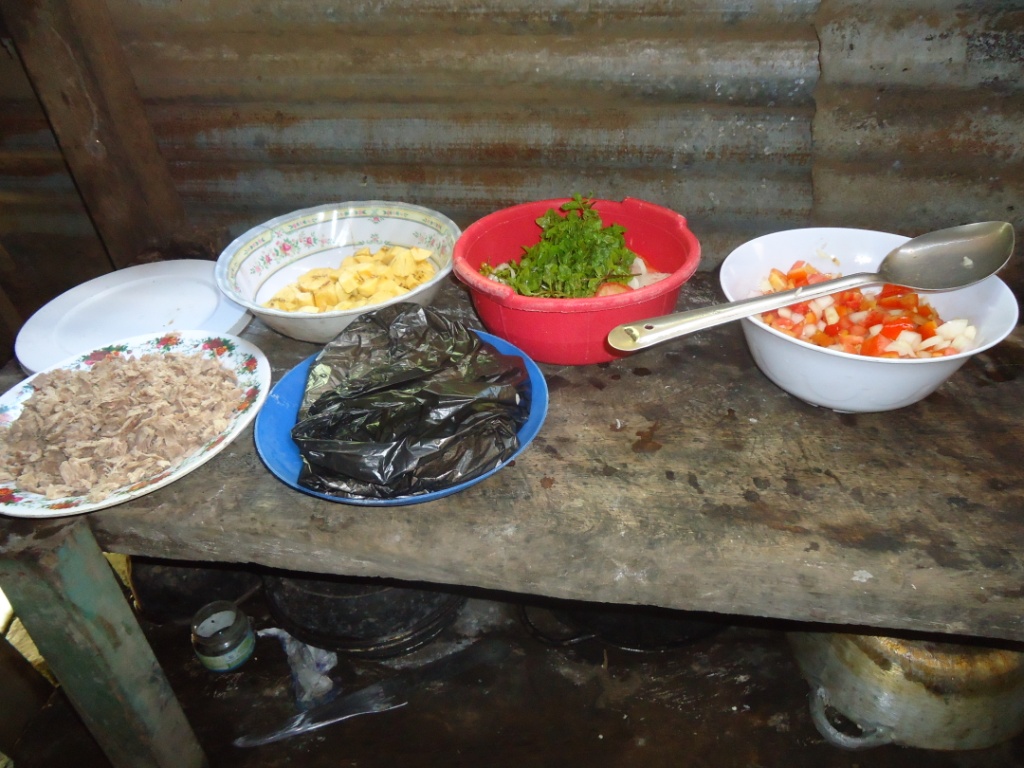
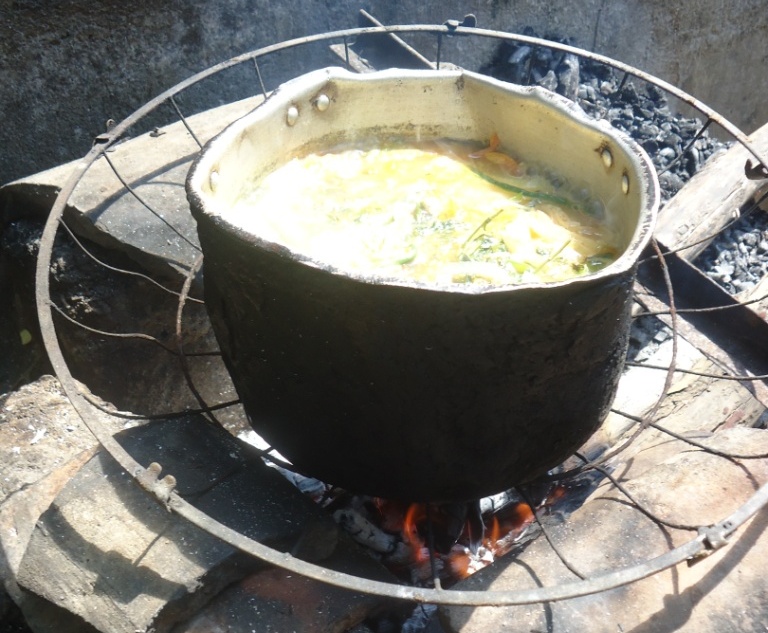
While our food was cooking, we snacked on pico de gallo, cheese, and tortillas and talked about what life is like in Sutiava. Our hosts were friendly people happy to share their stories and there were two insanely cute girls playing in the front yard. Sure, iguana soup may not be on the menu at home, but mealtimes are still a social gathering in Nicaragua. Some things are the same worldwide.
When our food was ready, it was time to sample our creations. The iguana soup, I’m afraid to say, was not very good. Someone told me iguana tastes like chicken. It does not. Start by thinking about the flavor of a chicken wing, throw in a gamey tinge, add a touch of fishiness, and then give it a tough texture. That’s iguana.
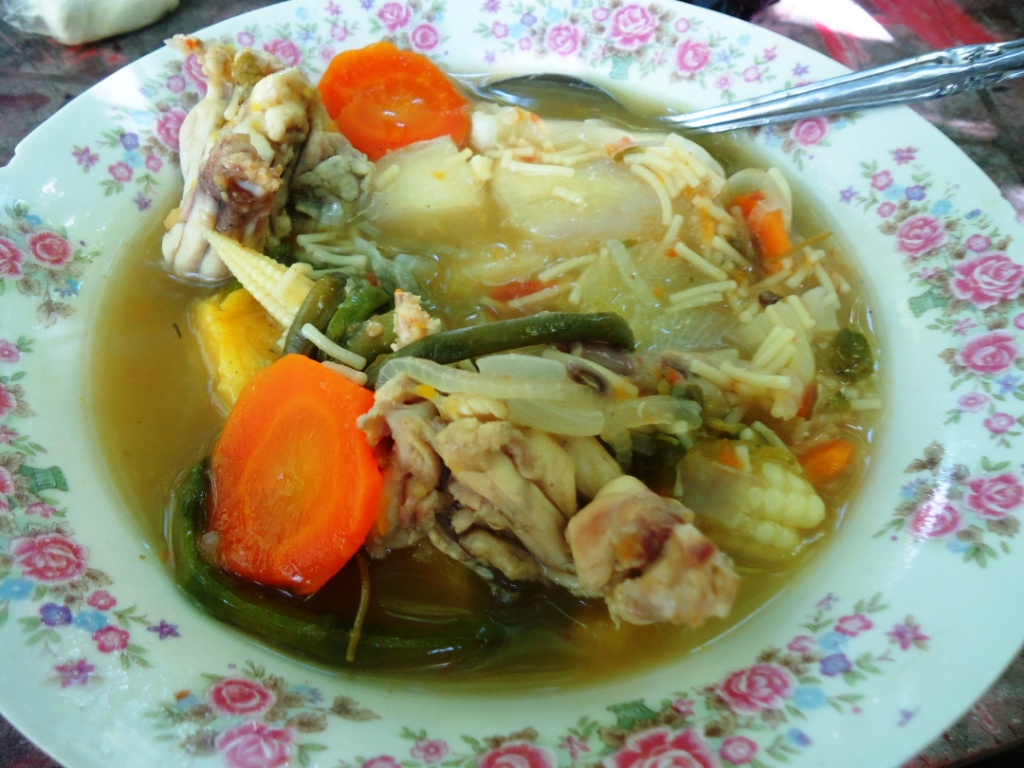
Our other dish, indio viejo, is an authentic Nicaraguan meal made from a base of corn flour, or masa. To it, we added beef, onions, peppers, tomatoes, garlic, achiote (a spice or flavoring), mint, and the juice of a sour orange. It had a good flavor, but all that masa led to a very grainy texture. I probably won’t be making it at home anytime soon.
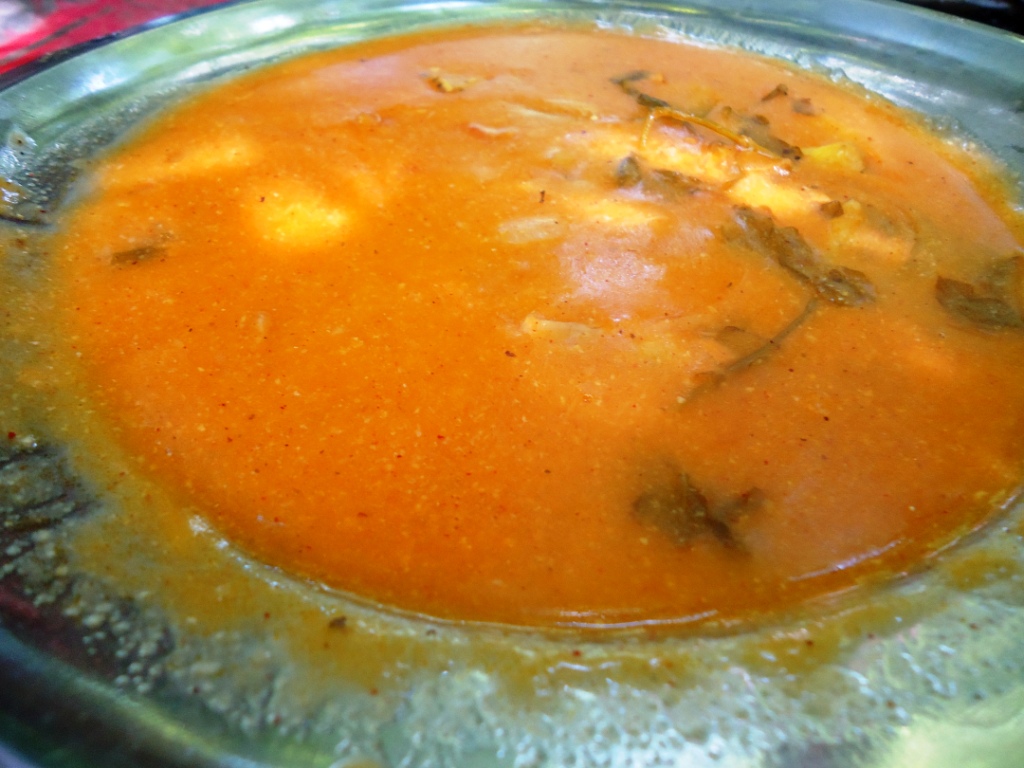
I learned a lot from this experience, including:
- I don’t like iguana.
- I can kill an animal if I have to, but I really don’t want to.
- Every penny I spend at home to support farms that humanely butcher animals is money well spent.
This wasn’t quite what I had in mind from a cooking class, but in a very weird way, I still had a good experience. I’d do it again and I’d recommend it. If you’re interested, contact NicAsí tours and say hi to Harrie for me (heads up: their website is a few years old so details and prices have changed slightly). Don’t worry…you can opt out of the iguana soup if you want.
* * *
This post was not sponsored by NicAsí in any way. In fact, they are unaware I even write a travel blog.
My trip to Nicaragua remains one of my all-time favorites; for more stories, suggestions on things to do, information on budgeting, and FAQ on traveling throughout the country, see all of my posts about Nicaragua!

Ha! I have eaten Iguana and enjoyed it when I lived in Punta Gorda, Belize. But kudos for you for actually taking it from the beginning to the end. Even if it didn’t turn out all that great 🙂
@Jasmine, if I had known what I was getting into, I may never have done it! Kudos to you as well for trying it!
WOW! I’ve never experienced a cooking class quite like that. That’s wild. interestingly, when I was in Aruba my guide and his friend bother swore to me that drinking Iguana soup broth completely cures asthma.
@Jessica, It’s definitely a one-of-a-kind cooking tour. Sounds like iguana soup is a miracle food!